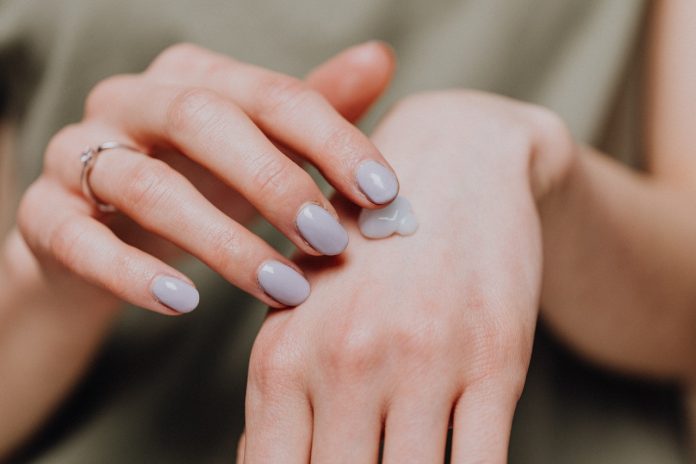Glutathione is a tripeptide that was originally discovered in baker’s yeast back in 1888. It’s made up of three amino acids: glycine, glutamic and cysteine acid. Together, they make an incredibly powerful antioxidant that boasts lots of benefits for the whole body, including the skin.
Glutathione is found naturally in some sulphur-rich foods, however, absorption rates from food are low. It is mostly produced in the liver and is found in every single cell in the body. It plays an important role in protecting the body – without glutathione, the body can’t get rid of toxins; a buildup of toxins in the body can lead to cell damage.
The trouble is, as we get older, our glutathione production slows. As a result, this contributes to the signs of ageing – both inside (think age-related diseases) and outside the body (wrinkles and skin). Other factors like certain medications and stress can also deplete glutathione levels.
Table of Contents
What does glutathione do for the body?
Glutathione has many benefits for the body including:
- Prevents oxidative stress (from things like pollution, stress and heavy metals)
- Contributes to the regeneration of vitamin C and vitamin E
- Supports cell regeneration
- Essential to mitochondrial function (the energy source at the centre of our cells)
- Contributes to detoxification of toxins from the body
- Supports the immune system
It has been used to treat cancer, Parkinson’s, cystic fibrosis, lead exposure and other conditions. Over time, one of the side effects that became apparent was an improvement in the appearance of the skin. Today, there is a large community that uses glutathione for skin-brightening side effects.
So how does glutathione brighten skin?
Glutathione has been hailed as an anti-ageing saviour. But how does glutathione help clear skin? Cells called melanocytes produce a pigment called melanin. Melanin is responsible for the colour of our eyes, hair, and skin. The more melanin we have, the darker they will be. Glutathione prevents melanin production by binding to an enzyme called tyrosinase.
The visual effects of glutathione on the skin can include:
- Reduced hyperpigmentation
- Brighter complexion
- Improved appearance of freckles and liver spots
- Better skin tone
- Reduction in the pigmentation caused by sun damage
How long does glutathione take to clear skin?
How long it takes glutathione to clear your skin really depends greatly on the individual and whether you are taking glutathione orally (pills or sublingually, for example) or with an IV drip.
For those with fair to medium skin, it can take three or more months to start seeing results from oral tablets. With an IV drip changes may be visible in as little as a couple of weeks. For those with darker skin tones, it can take a lot longer to see the effects.
The effects of glutathione are not permanent and you will need to either continue to take tablets or continue to have regular top-up drips every few months (depending on what your clinician advises).
How to take glutathione: Food, oral tablets or IV drips?
However you choose to take glutathione, it will need to become part of your regime if you want to see sustained results.
Glutathione is available in tablet form, however, it is worth bearing in mind that the bioavailability of oral glutathione (whether via tablet or food) is very low. Low bioavailability means that not much is absorbed into the body through the gut. This is because glutathione is quite a large compound and has to be broken down (metabolised) before it can be absorbed. During this process, much of its value is lost.
The IV drip is a more popular and effective method for getting glutathione due to the high bioavailability it offers. As it is delivered directly into the bloodstream, it bypasses the gut completely so none of it is broken down or lost before it can be utilised.
Is it safe to take glutathione?
Although considered to be reasonably safe, long-term use of glutathione has been linked to low zinc levels. Side effects can include allergic reactions. Glutathione is still reasonably new and as such, research is ongoing. There is always a risk of adverse reactions and side effects with any tablet or IV drip just as there is with any other form of medication.
There are some people who shouldn’t take glutathione and these include those currently having chemotherapy or with benzyl alcohol sensitivities.
For peace of mind if you are considering glutathione it is always best to consult your GP or a doctor who specialises in IV drips. They can not only advise you on potential side effects, but explain if this is the right supplement for you, and provide a safe environment in the rare instance that you experience any reaction(s).
Glutathione for skin brightening
As mentioned above, if you are considering taking glutathione in any form, it’s essential to touch base with your GP or a specialist to ensure it’s the right choice for you and for your own safety.














